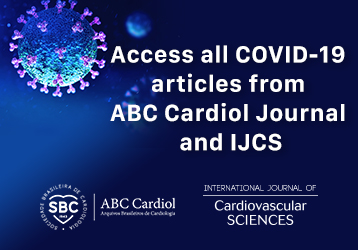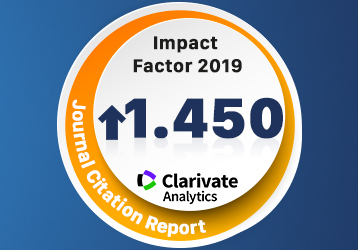Volume 113, Nº 5, November 2019
DOI: http://www.dx.doi.org/10.5935/abc.20190190
ORIGINAL ARTICLE
New-Onset Atrial Fibrillation in St-Segment Elevation Myocardial Infarction: Predictors and Impact on Therapy And Mortality
Kisa Hyde Congo
Adriana Belo
João Carvalho
David Neves
Rui Guerreiro
João António Pais
Diogo Brás,Mafalda Carrington
Bruno Piçarra
Ana Rita Santos
José Aguiar

Abstract
Backgrund: New-onset atrial fibrillation complicating acute myocardial infarction represents an important challenge, with prognostic significance.
Objective: To study the incidence, impact on therapy and mortality, and to identify predictors of development of new‑onset atrial fibrillation during hospital stay for ST-segment elevation myocardial infarction.
Methods: We studied all patients with ST-elevation myocardial infarction included consecutively, between 2010 and 2017, in a Portuguese national registry and compared two groups: 1 – no atrial fibrillation and 2 – new-onset atrial fibrillation. We adjusted a logistic regression model data analysis to assess the impact of new-onset atrial fibrillation on in-hospital mortality and to identify independent predictors of its development. A p value < 0.05 was considered significant.
Results: We studied 6325 patients, and new-onset atrial fibrillation was found in 365 (5.8%). Reperfusion was successfully accomplished in both groups with no difference regarding type of reperfusion. In group 2, therapy with beta-blockers and angiotensin-conversion enzyme (ACE) inhibitors/angiotensin receptor blockers (ARBs) was less frequent, 20.6% received anticoagulation at discharge and 16.1% were on triple therapy. New-onset atrial fibrillation was associated with more in-hospital complications and mortality. However, it was not found as an independent predictor of in‑hospital mortality. We identified age, prior stroke, inferior myocardial infarction and complete atrioventricular block as independent predictors of new-onset atrial fibrillation.
Conclusion: New-onset atrial fibrillation remains a frequent complication of myocardial infarction and is associated with higher rate of complications and in-hospital mortality. Age, prior stroke, inferior myocardial infarction and complete atrioventricular block were independent predictors of new onset atrial fibrillation. Only 36.7% of the patients received anticoagulation at discharge. (Arq Bras Cardiol. 2019; 113(5):948-957)
Keywords: Atrial Fibrillation; ST Elevation Myocardial Infarction/complications; Hospitalization; Mortality; Antihypertensive; Anticoagulants.















